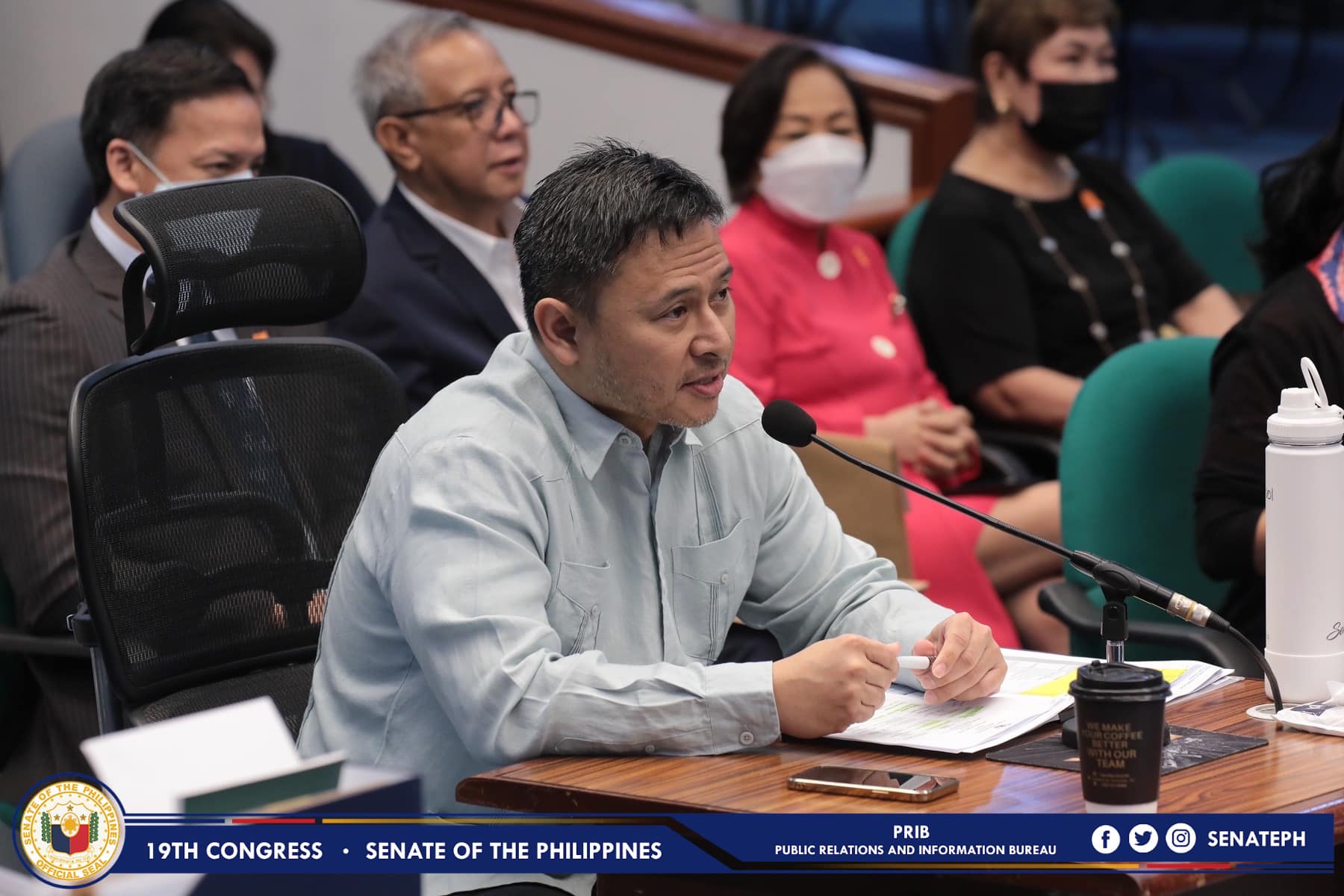News
Senate stand: Yes to economic changes, no to political provisions

Angara’s subcommittee will be under the Committee on Constitutional Amendments and Revision of Codes, currently chaired by Senator Robinhood Padilla. (File Photo: Voltaire F. Domingo/Senate PRIB via Senate of the Philippines/Facebook)
MANILA – The resolution to amend the economic provisions of the Constitution will liberalize the public services, educational institution and advertising industries.
Liberalizing the three sectors will allow foreign corporations or individuals to enter the country and bring more opportunities, explained Senator Sonny Angara, who will lead the subcommittee that will discuss the proposed amendments.
He reiterated in an interview over radio station DZRH on Tuesday that they will not allow any political provision.
Senate President Juan Miguel Zubiri filed on Monday Resolution of Both Houses No. 6, which was also signed by Senate Pro Tempore Loren Legarda and Angara.
It seeks to amend Articles XII, XIV and XVI of the constitution after consulting with President Ferdinand R. Marcos Jr.
“Tingin ko mas maganda ang tsansa ngayon dahil maaga pa sa termino ng ating Pangulo. Dahil kadalasan kapag nasa second half na ay ayaw na ng publiko sasabihin pampahaba lang ng termino. Eh ngayon na maaga pa klaro na ang usapin ay economic provision lang ng Saligang Batas at di ang usapin ng sistema ng gobyerno o termino (I think it has a better chance because it is still early in the term of the President. Because usually if it will be filed in the second half, the public will think that it is for term extension. Now, it’s earlier and clearer that only the economic provisions will be discussed and not the government system or term),” Angara said.
He said when the Senate resumes sessions on Jan. 22, they will start discussions with economic experts and representatives from the industries concerned.
Angara’s subcommittee will be under the Committee on Constitutional Amendments and Revision of Codes, currently chaired by Senator Robinhood Padilla.
In a statement on Monday, Padilla welcomed the resolution citing it as a “very good news for the nation.”
“Magkakaroon na po ng bagong sigla ang ating ekonomiya tungo sa pag-unlad ng buhay ng mga Pilipino (Our economy will be revitalized, and this will lead to progress in the lives of Filipinos),” Padilla said.
Senator Sherwin Gatchalian expressed his full support to the resolution as the proposed amendments “would lead us to fully realize the economic potential of the country.”
Gatchalian noted that despite the country’s growth, the economy is still characterized by constitutional restrictions such as limits to foreign equity in the ownership and operation of public utilities, educational institutions, mass media, and advertising.
“In certain industries, there are restrictions for foreign ownership. Currently, in the case of operation of public utilities, only up to 40 percent foreign ownership is allowed while for educational institutions, even partial foreign ownership is prohibited,” he said in a news release on Tuesday.
Gatchalian cited the Organization for Economic Cooperation and Development 2020 Foreign Direct Investment Regulatory Restrictiveness Index that ranked the Philippines as the third most restrictive among 84 member countries.
He said innovations generated from competition and development of new linkages with regional and global chains will improve the diversity of the Philippine foreign trade portfolio and ultimately increase worker productivity





















